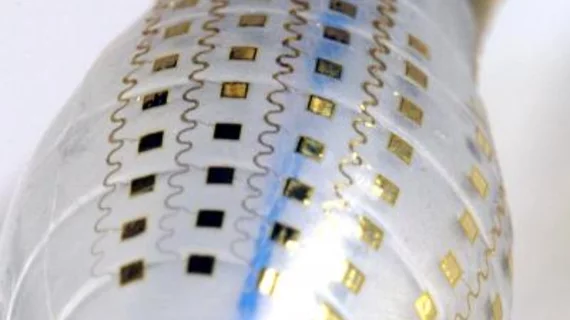New-look catheter system shows potential to boost cardiac care
Researchers have developed a new balloon catheter system equipped with electronic components and sensors, sharing their work in Nature Biomedical Engineering.
The system, designed using stretchable materials that conform to the patient’s tissue, can assist healthcare providers performing minimally invasive surgeries and ablations to treat cardiac conditions such as heart arrhythmias.
“Hard, rigid catheters cannot conform to the heart because the heart itself is not hard and rigid,” corresponding author John A. Rogers, a professor at Northwestern University, said in a prepared statement. “We leveraged our advances in soft, stretchable and flexible electronics to develop medical devices that include elastic, interconnected arrays of sensors and actuators, capable of gently and softly conforming to tissue surfaces. The result improves the accuracy and precision of associated surgical processes, for faster, less risky and more effective treatments.”
The research team noted that these new solutions have the ability to provide real-time feedback during procedures. In addition, they could help cardiologists probe a patient’s beating heart with more accuracy and efficiency than ever before.
The full study from Nature Biomedical Engineering is available here.

